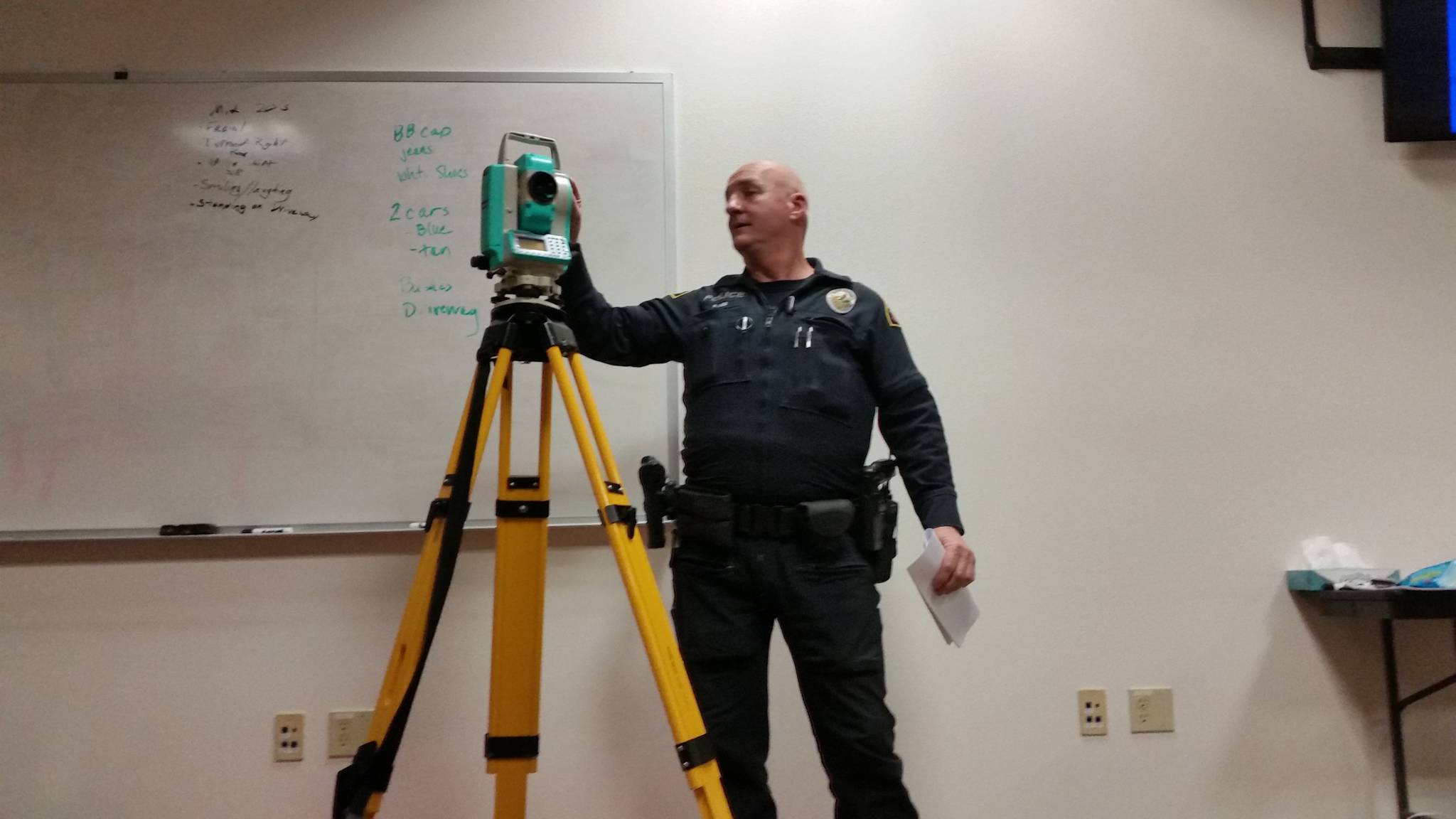Fourth in a series
MARYSVILLE – Things happen so fast in a dramatic situation that you can miss a lot.
We’ve learned that practically every week as myself and 22 others are halfway through the Marysville Police Citizens Academy.
This week we were shown the “gorilla” movie. In it three people are dressed in white and three in black. We’re asked to count the number of times the people in white pass the ball to each other. That was the easy part, it was 16. The harder part was someone came into the fray wearing a gorilla costume, and one of the folks in black went off-screen. While I saw those, but some others didn’t, I missed that the backdrop, a curtain, changed colors during the ordeal.
In another film clip, shown while Cmdr. Wendy Wade was talking to us, almost all of us missed almost everything. It was just two seconds. Some people described what the one man was wearing, but that was it. No one noticed he pulled a gun and shot at us, turn and ran. Officers explained to us that when you hear of a criminal being shot in the back, that often is how it happens. By the time the officer realizes what happened, he or she is shooting as the suspect has turned. Since they can shoot five rounds a second, a number of bullets can hit a suspect because the officer even realizes the threat is over.
Police talked to us about criminal investigations: from crimes to a person like murder, assault and rape to crimes involving property like arson, theft and fraud. He told us about the amount of training officers receive on different crimes, such as 40 hours blood-stain analysis to 16 hours for practical homicide investigation.
Officers explained the levels of sex offenders, three being the most likely to reoffend. Officer Craig Bartl said they are the only criminals who have to register because they are predators who find it so hard to stop. Police said during investigations it’s important to go where the evidence takes you, rather than jumping too conclusions with a preconceived theory. Observation is everything.
Officers said getting a confession is the No. 1 goal, but catching them in a lie is almost as good. An officer needs to be 51 percent sure someone committed a crime to make an arrest. A prosecutor, however, may reduce a charge because it’s much harder to convince a jury a criminal is guilty beyond a reasonable doubt.
Officer Doug Lee then led a presentation on traffic enforcement, the major goal being to reduce collisions. “We want a safe and efficient flow of traffic,” he said.
Lee said that when police write tickets, it is a well-known fact that collisions are reduced. But he said he only writes tickets about 30 percent of the time as there are no quotas in the MPD. Traffic police educate, enforce and help with engineering. When responding to a traffic accident, officers find out who the drivers and witnesses are. But as was explained earlier how hard it is to recall details in dramatic situations, Lee looks at the evidence: such as damage to the vehicles and skid marks, adding he measures the scene and takes pictures. “They tell the story,” he said.


